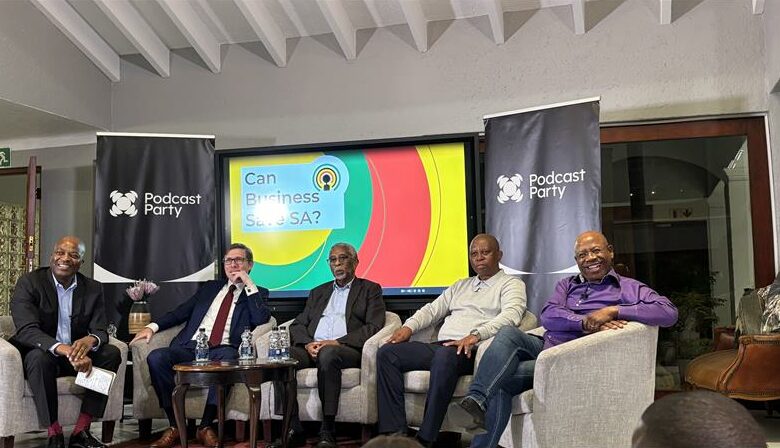Sandhurst podcast debates on businesses rescuing South Africa
As the government struggles to deliver, attention turns to business leaders. But can they really rebuild jobs, trust, and growth, or is this a burden too heavy to carry?

A fiery discussion in Sandhurst on September 30 posed the urgent question about South Africa: Can business save South Africa?
The country is facing a perfect storm: rolling blackouts, record unemployment, and a government widely seen as paralysed by corruption and incompetence.
The latest installment of the Democracy Unplugged debate series, moderated by journalist Justice Malala, brought heavyweight voices to the table: political economist Moeletsi Mbeki, corporate leader Bonang Mohale, entrepreneur and former Johannesburg Mayor Herman Mashaba, and Piet le Roux, CEO of Sakeliga.
Read more: Africa’s G20 presidency champions real action for women’s economic empowerment
Their views revealed both the possibilities and deep divisions over businesses’ role in national renewal.
Mbeki struck an optimistic note, arguing that South Africa’s corporate sector is uniquely positioned to lead change.
“According to international surveys, business is the most trusted institution in South Africa. Government and political parties are the least trusted. That tells you where people see hope,” he said.
He noted that, unlike many African countries, South Africa’s major businesses are locally owned, a legacy of citizens buying out foreign firms during sanctions and disinvestment.
“That gives business both the stake and the responsibility to lead national renewal,” he added.

Mohale, however, warned that the private sector cannot claim credibility without reckoning with its past.
“For too long, business was complicit, from state capture to corruption. But it now has a chance to redeem itself,” he said.
Also read: Her economy summit 2025 launches successfully in Sandton
For Mohale, business holds the project management skills and organisational discipline that government lacks. But for it to carry legitimacy, it must also transform itself to reflect the demographics of the country.
Mashaba, who has long clashed with entrenched corporations, accused big business of shielding political elites.
“I fought corruption in the city and uncovered billions in stolen funds. But big business worked with the ANC to undermine reform and protect vested interests,” he claimed.
He placed his hope not in large corporations but in small businesses and entrepreneurs who, he argued, were closer to communities’ needs.
“If business is going to play a role, it has to be about creating jobs, building housing, and investing in communities, not shielding politicians.”
Le Roux took a structural view, pointing out that the root cause lies in politics, not business. Still, he argued that the private sector cannot afford to wait passively.
“Business must become an active counterweight to harmful policies and protect civil society from political overreach.”
Follow us on our WhatsApp channel, Facebook, X, Instagram, and TikTok for the latest updates!



